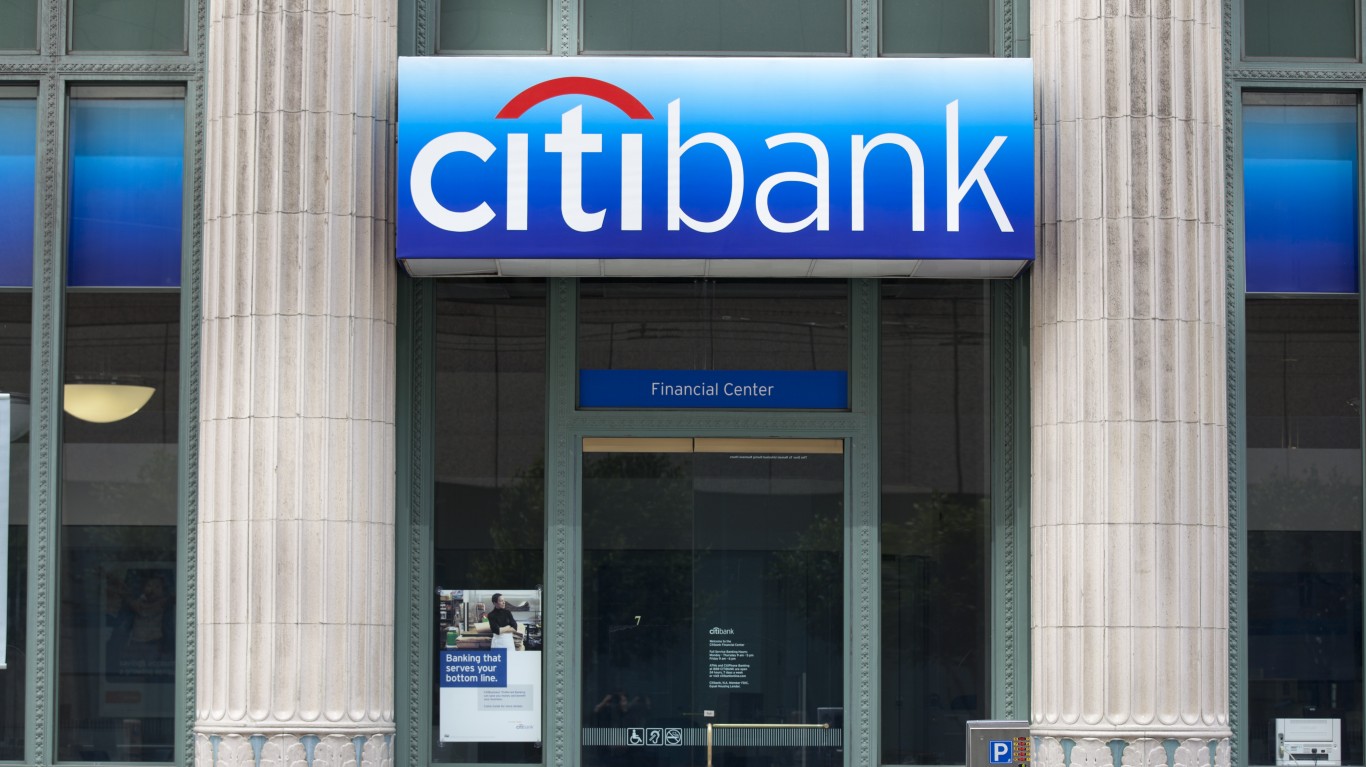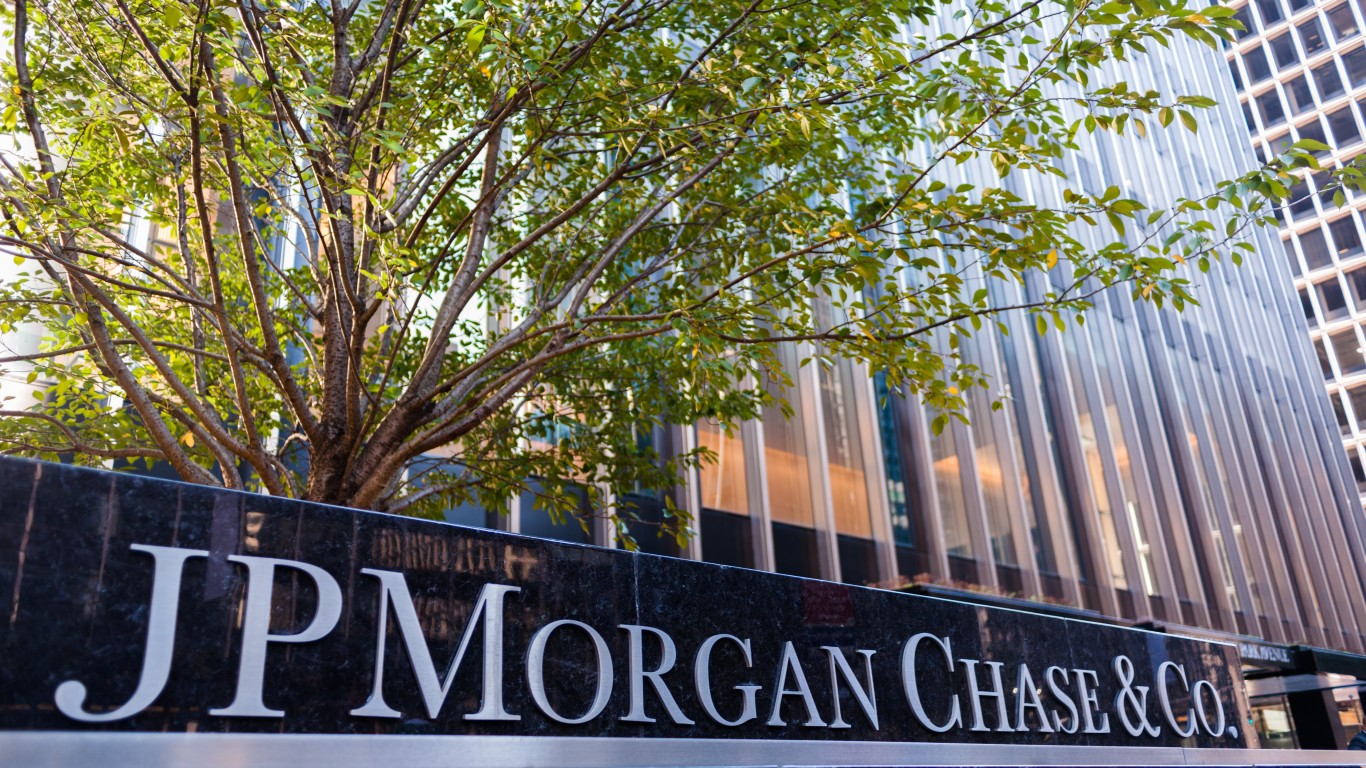Investing
Hedge Funds Are Buying These 4 Blue-Chip Dividend Bank Stocks Hand-Over-Fist

Published:

Key Points
Since 1926, dividends have contributed approximately 32% of the total return for the S&P 500, while capital appreciations have contributed 68%. Therefore, sustainable dividend income and capital appreciation potential are essential for total return expectations.
A study from Hartford Funds, in collaboration with Ned Davis Research, found that dividend stocks delivered an annualized return of 9.18% over the past half-century (1973-2023). Over the same timeline, this was more than double the annualized return for non-payers (3.95%).
In a recent research note, the analysts at Goldman Sachs pointed out that many of the top hedge funds had been buying the shares of some of the top money center banks at the fastest pace in three years. The traders on Goldman Sachs’ prime brokerage desk reported that banks and trading companies were the most bought sectors in recent weeks. Many on Wall Street are pointing to a new era of lighter regulation as the wind behind the buying.
We screened our 24/7 Wall Street financial research database, looking for the top companies in the sector that also pay solid and dependable dividends. Four money center giants hit our screens, all rated Buy at major firms that we cover on Wall Street. In addition, all make sense for growth and income investors looking to add financial stocks to a well-rounded portfolio.

Dividend stocks provide investors with reliable streams of passive income. Passive income is characterized by its ability to generate revenue without requiring the earner’s continuous active effort, making it a desirable financial strategy for those seeking to diversify their income streams or achieve financial independence.

The company posted strong third-quarter results and pays a solid 2.30% dividend. Bank of America Corporation (NYSE: BAC) is a ubiquitous presence in the United States, providing various banking and financial products and services for:
Bank of America operates 5,100 banking centers, 16,300 ATMs, call centers, and online and mobile banking platforms.
Bank of America has expanded into several new US markets, and its global scale ideally positions it to benefit from accelerating loan growth over the next two years. Moreover, unlike smaller peers, scale allows the bank to substantially increase investment over the next few years without notably jeopardizing returns, driving further market share gains.
Despite selling a large number of shares this year, Warren Buffett still owns 766,305,462 bank shares, 03% of the float, and 11.8% of Berkshire Hathaway’s portfolio.

Citigroup Inc. or Citi is an American multinational investment bank and financial services company in New York City.
This is another top bank that Warren Buffett owns. He bought a massive $2.5 billion worth of the shares in the summer of 2022. The stock pays a dependable 3.20% dividend. Citigroup Inc. (NYSE: C) is a leading global diversified financial service company that provides consumers, corporations, and governments with a broad range of financial products and services.
Citigroup offers:
Citi operates and does business in more than 160 countries/ jurisdictions in North America, Latin America, Asia, Europe/Middle East and Africa (EMEA).
Trading at a reasonable 9.7 times estimated 2025 earnings, this company looks very reasonable in an expensive stock market and in a sector that has lagged some in 2024 but looks to be gaining ground in a big way.

This stock trades at a still reasonable 12.7 times estimated 2024 earnings. JPMorgan Chase & Co. (NYSE: JPM) is one of the leading global financial services firms and one of the largest banking institutions in the US, with about $3.9 trillion in assets. The company was formed through the merger of retail bank Chase Manhattan and investment bank JP Morgan.
The bank operates through four segments:
The CCB segment offers:
The CIB segment provides:
This segment also offers securities services, including custody, fund accounting and administration, and securities lending products for asset managers, insurance companies, and public and private investment funds.
The CB segment provides financial solutions, including lending, payments, investment banking, and asset management to small and midsized companies, local governments, nonprofit clients, and large corporations, as well as investors, developers, and owners of multifamily, office, retail, industrial, and affordable housing properties.
The AWM segment offers multi-asset investment management solutions in equities, fixed income, alternatives, and money market funds to institutional clients and retail investors; retirement products and services; brokerage, custody, estate planning, lending, deposits, and investment management products to high-net-worth clients.

With a solid 2.30% dividend and many headline issues in the rearview mirror, this money-center giant makes sense now. Wells Fargo & Company (NYSE: WFC) is a financial services company that provides diversified banking, investment, mortgage, and consumer and commercial finance products and services in the United States and internationally.
The company operates through four segments:
The Consumer Banking and Lending segment offers consumers and small businesses diversified financial products and services. These include checking and savings accounts, credit and debit cards, and home, auto, personal, and small business lending services.
The Commercial Banking segment provides financial solutions to private, family-owned, and certain public companies. Its products and services include banking and credit products across various industry sectors and municipalities, secured lending and lease products, and treasury management services.
The Corporate and Investment Banking segment offers a suite of capital markets, banking, and financial products and services, such as:
Corporate banking
The Wealth and Investment Management segment provides wealth management, brokerage, financial planning, lending, private banking, and trust and fiduciary products and services to affluent, high-net-worth, and ultra-high-net-worth clients.
It also operates through financial advisors in brokerage and wealth offices, consumer bank branches, independent offices, and digitally through WellsTrade and Intuitive Investor.
If you’re one of the over 4 Million Americans set to retire this year, you may want to pay attention.
Finding a financial advisor who puts your interest first can be the difference between a rich retirement and barely getting by, and today it’s easier than ever. SmartAsset’s free tool matches you with up to three fiduciary financial advisors that serve your area in minutes. Each advisor has been carefully vetted, and must act in your best interests. Start your search now.
Don’t waste another minute; get started right here and help your retirement dreams become a retirement reality.
Thank you for reading! Have some feedback for us?
Contact the 24/7 Wall St. editorial team.